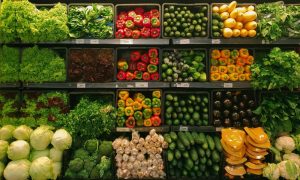Organic food sales may soon outpace non-organic food sales, but consumers may face issues with the price of some products due to supply chain issues.
While already widely available and quite popular, organic food found even greater popularity over the course of the COVID-19 pandemic as consumer interests shifted to overall health and wellness. The 2021 Organic Industry Survey from the Organic Trade Association (OTA) reports sales reached over $62 billion in 2020. The organic food industry is in its 12th consecutive year of growth and now accounts for 3% of all food expenditures in the U.S. And organic price reporting agency Mercaris estimates the number of U.S. certified organic farm acres to be 9.1 million—a 123% increase from 2008. Dairy cow inventories have also grown 164%, according to Mercaris, and the USDA Agricultural Marketing Service’s data shows that organic turkey slaughter has shot up 303% over the past ten years. Organic baby food sales also grew while packaged and prepared food sales shrank.
Unfortunately, while organic food has gained popularity, supply chain issues threaten to slow down this growing market. Post-pandemic consumer behavior is still trending up, but inflation may put a damper on buying, said Ryan Koory, Vice President of Economics at Mercaris. Koory added that prices of organic staples, like soybeans, have skyrocketed; soybeans are now at a high of $39.50 per bushel.
This has caused a reduction in imports from countries like India, a key player in soybean production. Ukraine was also a considerable exporter of soybeans and grains, but due to war, many Ukrainian farmers are unable to remain certified for export—and, Russia has many of Ukraine’s ports blocked. As a consequence, imports of organic soybeans are set to hit six-year lows in 2022. Additionally, organic corn imports are also slowing down. But as the U.S. is a top producer and exporter of organic corn, this drop in imports will have a minimal impact on the economy as long as harvests are bountiful, as they have been the past two years.




















